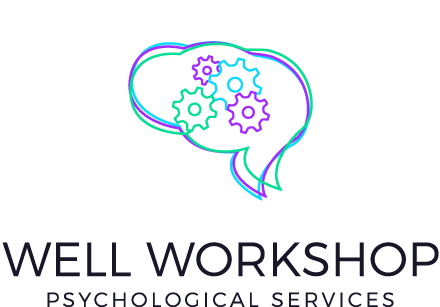Women and ADHD: Recognizing Overlooked Symptoms
ADHD in women often goes unrecognized or misdiagnosed. Women with ADHD may experience symptoms differently than men. These symptoms can be subtle and easily mistaken for other issues. As a result, many women don't receive the help they need.
Understanding ADHD symptoms in women is important for proper diagnosis and treatment. Women might struggle with inattention, forgetfulness, and emotional sensitivity, among other symptoms. These can affect their daily lives, relationships, and mental health.
Recognizing these overlooked symptoms is the first step to getting the right support. Increased awareness can lead to better diagnosis and more effective treatments. Women deserve the same opportunity to manage their ADHD symptoms and improve their quality of life.
Common ADHD Symptoms in Women
Inattention and Forgetfulness
Women with ADHD often struggle with paying attention and remembering things. They may have a hard time focusing on tasks, especially if those tasks are dull or repetitive. Forgetting appointments, losing items, and missing deadlines are common issues. These symptoms can make it challenging to manage daily life and responsibilities.
Inattentive symptoms may lead to difficulties at work or school. Women might find it hard to stay on task and complete projects on time. This can result in underperformance and feelings of frustration. Recognizing these symptoms is a step towards getting proper help.
Emotional Sensitivity and Mood Swings
Another common symptom of ADHD in women is emotional sensitivity. Many women with ADHD experience intense emotions that can change rapidly. Mood swings, irritability, and feeling overwhelmed are typical. This can affect relationships with family, friends, and colleagues.
Women may find themselves more easily stressed or upset by minor issues. Emotional sensitivity can lead to misunderstandings and conflicts. Managing these symptoms often requires strategies like mindfulness or therapy to help regulate emotions.
Mistaking ADHD for Other Conditions
Anxiety and Depression
ADHD symptoms in women can be mistaken for anxiety or depression. Both ADHD and these conditions can cause restlessness, difficulty concentrating, and emotional issues. Because of this overlap, women might be diagnosed with anxiety or depression instead of ADHD.
It’s essential to recognize that these conditions can co-exist. Proper diagnosis is crucial for effective treatment. Treating only anxiety or depression without addressing ADHD can leave some symptoms unmanaged, affecting overall well-being.
Hormonal Imbalances
Hormonal changes can also mimic ADHD symptoms. Women may notice mood swings, forgetfulness, and trouble focusing, especially around menstrual cycles, pregnancy, or menopause. These hormonal shifts can complicate the detection of ADHD.
Doctors might initially consider hormonal imbalances as the main issue, overlooking ADHD. It’s important to examine all symptoms comprehensively. A detailed evaluation can help distinguish between hormonal effects and ADHD, ensuring appropriate treatment strategies.
The Impact of Overlooked Symptoms
Effects on Daily Life
Overlooked ADHD symptoms can have a huge impact on a woman's daily life. Struggling to stay organized or remember important tasks can make simple activities feel overwhelming. The constant feeling of being behind can lead to stress and frustration.
Women might face difficulties at work, such as missing deadlines or making errors. These challenges can affect self-esteem and job performance. At home, managing household chores and family responsibilities can become harder, leading to conflicts or strained relationships.
Long-term Consequences
If ADHD symptoms remain unnoticed and untreated, they can lead to long-term problems. Chronic stress from managing ADHD can result in other health issues like anxiety, depression, or high blood pressure. Persistent issues can also affect personal and professional growth.
Unaddressed ADHD can limit opportunities for career advancement and personal achievements. Long-term effects can include financial difficulties due to disorganization and time management issues. Recognizing and treating ADHD is crucial for improving overall quality of life.
Steps to Diagnosis and Treatment
When to Seek Professional Help
It's important to seek help if you notice symptoms affecting your daily life. If you find it hard to focus, remember tasks or manage emotions, consider reaching out to a healthcare provider. Early intervention can prevent symptoms from getting worse.
Signs that it's time to see a professional include frequent forgetfulness, mood swings, and trouble with daily responsibilities. A proper diagnosis is needed to create an effective treatment plan, so don't delay seeking help.
Treatment Options and Resources
Once diagnosed, there are several treatment options available. Medication can help manage some ADHD symptoms. Common medications include stimulants and non-stimulants, which improve focus and reduce impulsivity.
Therapy, such as cognitive-behavioural therapy (CBT), can be very helpful. CBT teaches strategies to manage emotions and behaviours. Lifestyle changes, like a balanced diet, regular exercise, and good sleep hygiene, also support overall treatment.
Support groups and online resources provide valuable tips and emotional support. Connecting with others who understand your struggles can offer comfort and practical advice.
Conclusion
Recognizing ADHD symptoms in women is essential for managing the condition effectively. Understanding and identifying these symptoms early can lead to better treatment outcomes. Women with ADHD can lead fulfilling lives with the right support and strategies
Awareness and education are key. By taking the first step to seek help and understand the condition, women can improve their mental health and daily living. Proper diagnosis and treatment make a significant difference in managing ADHD.
Well Workshop Psychological Services in Edmonton is ready to help you navigate your ADHD journey. Contact our ADHD clinic in Edmonton today to learn more about our services and how we can support your mental health needs.
